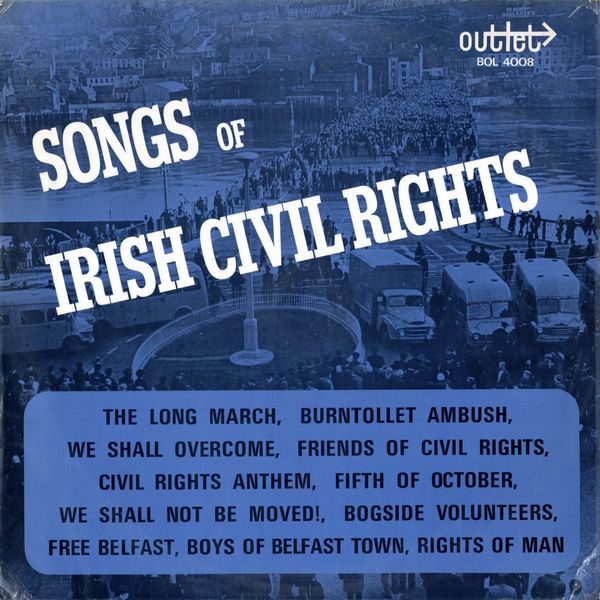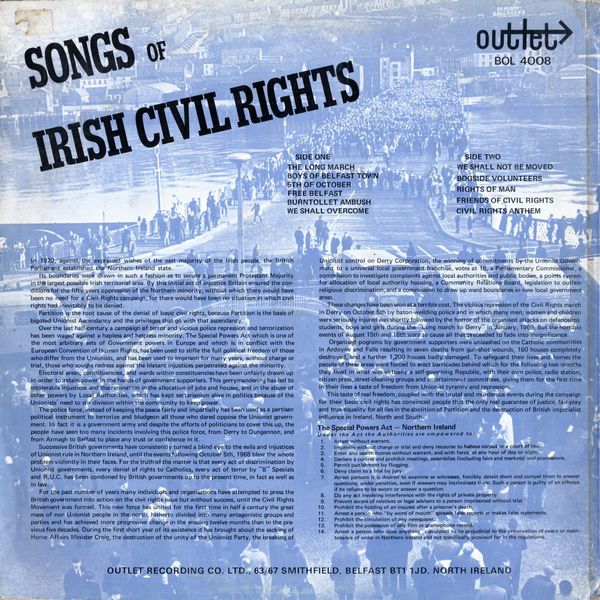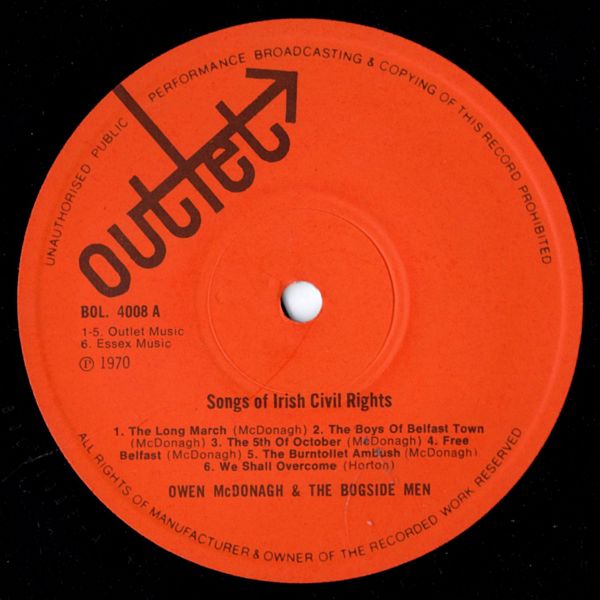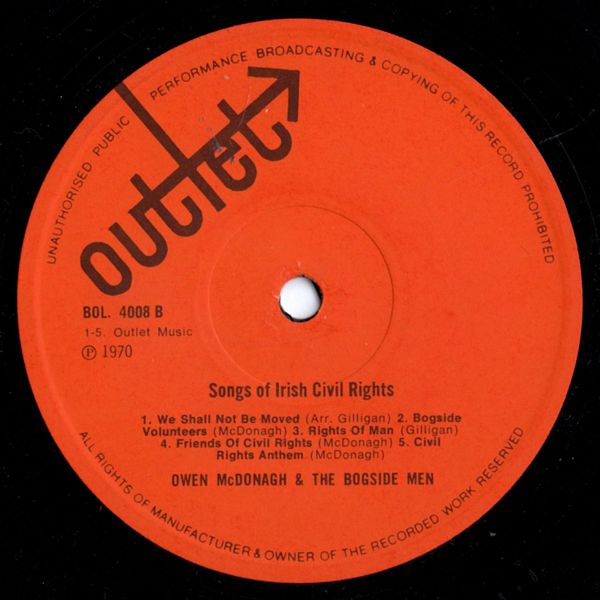
 |



|
In 1920, against the expressed wishes of the vast majority of the Irish people, the British Parliament established the Northern Ireland state.
Its boundaries were drawn in such a fashion as to secure a permanent Protestant Majority in the largest possible Irish territorial area. By this initial act of injustice Britain ensured the conditions for the fifty years oppression of the Northern minority, without which there would have been no need for a Civil Rights campaign, for there would have been no situation in which civil rights had inevitably to be denied.
Partition is the root cause of the denial of basic civil rights, because Partition is the basis of bigoted Unionist Ascendancy and the privileges that go with that ascendancy.
Over the last half-century a campaign of terror and vicious police repression and terrorization has been waged against a hapless and helpless minority. The Special Powers Act which is one of the most arbitrary sets of Government powers in Europe and which is in conflict with the European Convention of Human Rights, has been used to stifle the full political freedom of those who differ from the Unionists, and has been used to imprison for many years, without charge or trial, those who sought redress against the blatant injustices perpetrated against the minority.
Electoral areas, constituencies, and wards within constituencies have been unfairly drawn up in order to retain power in the hands of government supporters. This gerrymandering has led to intolerable injustices and discrimination in the allocation of jobs and houses, and in the abuse of other powers by Local Authorities, which has kept sectarianism alive in politics because of the Unionists' need to stir division within the community to keep power.
The police force, instead of keeping the peace fairly and impartially has been used as a partisan political instrument to terrorize and bludgeon all those who dared oppose the Unionist government. In fact it is a government army and despite the efforts of politicians to cover this up, the people have seen too many incidents involving this police force, from Derry to Dungannon, and from Armagh to Belfast to place any trust or confidence in it.
Successive British governments have consistently turned a blind eye to the evils and injustices of Unionist rule in Northern Ireland, until the events following October 5th, 1968 blew the whole problem violently in their faces. For the truth of the matter is that every act of discrimination by Unionist governments, every denial of rights to Catholics, every act of terror by "B" Specials and R.U.C. has been condoned by British governments up to the present time, in fact as well as in law.
For the past number of years many individuals and organisations have attempted to press the British government into action on the civil rights issue but without success, until the Civil Rights Movement was formed. This new force has united for the first time in half a century the great mass of non Unionist people in the north, hitherto divided into many antagonistic groups and parties and has achieved more progressive change in the ensuing twelve months than in the previous five decades. During the first short year of its existence it has brought about the sacking of Home Affairs Minister Craig, the destruction of the unity of the Unionist Party, the breaking of Unionist control on Derry Corporation, the winning of commitments by the Unionist Govern ment to a universal local government franchise, votes at 18, a Parliamentary Commissioner, a commission to investigate complaints against local authorities and public bodies, a points system for allocation of local authority housing, a Community Relations Board, legislation to outlaw religious discrimination, and a commission to draw up ward boundaries in new local government areas.
These changes have been won at a terrible cost. The vicious repression of the Civil R ights march in Derry on October 5th by baton weilding police and in which many men, women and children were seriously injured was shortly followed by the horror of the organised attacks on defenceless students, boys and girls during the 'Long march to Derry" in January, 1969. But the horrible events of August 15th and 16th were to cause all that preceeded to fade into insignificance.
Organised pogroms by government supporters were unleashed on the Catholic communities in Ardoyne and Falls resulting in seven deaths from gun-shot wounds, 160 houses completely destroyed, and a further 1,200 houses badly damaged. To safeguard their lives and homes the people of these areas were forced to erect barricades behind which for the following two months they lived in what was virtually a self-governing Republic, with their own police, radio station, citizen press, street-cleaning groups and entertainment committees, giving them for the first time in their lives a taste of freedom from Unionist tyranny and repression.
This taste of real freedom, coupled with the brutal and murderous events during the campaign for their basic civil rights has convinced people that the only real guarantee of justice, fair-play and true equality for all lies in the abolition of Partition and the destruction of British imperialist influence in Ireland, North and South.